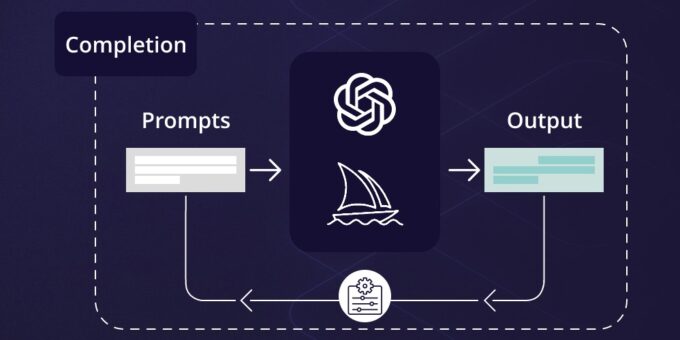
Introduction
In the age of advanced AI language models like ChatGPT, it can sometimes be challenging to discern whether an article was written by a human or an AI. As AI models become increasingly sophisticated, they can generate text that closely resembles human writing. However, there are several clues and techniques that can help you determine whether an article was authored by ChatGPT or written by a human. In this article, we will explore some key factors to consider when examining the origins of an article.
-
Evaluate Coherence and Flow
One way to assess the nature of an article is to analyze its coherence and flow. AI-generated content, while impressive, may sometimes exhibit minor inconsistencies, abrupt transitions, or lack of deep contextual understanding. Human-written articles, on the other hand, tend to have a more consistent flow, logical structure, and nuanced understanding of the topic. Look for signs of natural language patterns, coherent arguments, and well-crafted transitions as indicators of human authorship.
-
Assess Language Complexity and Errors
AI language models like ChatGPT often excel at generating grammatically correct text. However, they may occasionally produce language that is overly formal, generic, or lacks the subtleties and idiosyncrasies typically associated with human writing. Pay attention to the complexity of the vocabulary, the use of idiomatic expressions, and the presence of grammatical errors or inconsistencies. An article with complex vocabulary, nuanced language usage, and occasional minor errors is more likely to be human-authored.
-
Consider Creativity and Originality
Creativity and originality are traits closely associated with human writing. While AI models can generate impressive text, they often rely on patterns and examples from the training data they were exposed to. Look for unique perspectives, fresh insights, and creative approaches to the topic discussed in the article. Human authors are more likely to bring a personal touch, unique experiences, and fresh ideas to their writing.
-
Analyze Depth of Research and Domain Knowledge
The depth of research and domain knowledge exhibited in an article can provide clues about its authorship. Human writers typically conduct thorough research, cite relevant sources, and demonstrate a deep understanding of the topic. Look for references to specific studies, data, or expert opinions. AI-generated content may lack specific citations or demonstrate shallow domain expertise, relying more on general knowledge and patterns learned during training.
-
Examine Personal Voice and Perspective
Every writer has a distinct voice and perspective that shines through their work. Human-authored articles often reflect the author’s personality, beliefs, and unique style. AI-generated content, while capable of mimicking certain writing styles, may lack the personal touch and idiosyncrasies that come naturally to human writers. Look for indications of subjective viewpoints, personal anecdotes, or a distinct authorial voice as potential signs of human authorship.
How easy is to rank your article in Google
Determining whether a specific piece of content will rank in Google search results depends on various factors, including competition, search engine optimization (SEO), and the quality and relevance of the content itself. While it’s difficult to make a definitive prediction without analyzing the specific keywords and competition, there are a few general considerations:
- SEO Optimization: Ensure your article is well-optimized for search engines. This includes using relevant keywords, optimizing meta tags, using descriptive headings, and structuring the content in a user-friendly manner.
- Quality and Relevance: Google’s algorithms prioritize high-quality, informative, and relevant content. Make sure your article provides value to readers and covers the chosen topic comprehensively. Include relevant information, supporting evidence, and authoritative references.
- Unique Perspective: Adding a unique perspective or presenting information in a fresh and engaging way can increase the chances of attracting readers and earning backlinks from other websites, both of which can positively impact search rankings.
- Backlinks and Promotion: Building high-quality backlinks to your article from reputable websites can significantly improve its visibility and increase the likelihood of ranking higher in search results. Additionally, promoting the article through various channels (social media, newsletters, guest posting) can drive traffic and increase its chances of being shared and linked to.
- User Experience: Ensure that your article is easy to read, visually appealing, and mobile-friendly. User experience is a ranking factor, and a positive user experience can lead to longer on-page engagement and better search rankings.
- Competition: Consider the competitiveness of the keywords and topics you’re targeting. If there is high competition from established websites, it may require additional effort and time to rank prominently. Conduct keyword research to identify less competitive, long-tail keywords that are relevant to your article.
Remember, ranking on the first page of Google is a competitive process, and there are no guarantees. It’s important to focus on producing high-quality, valuable content that meets the needs of your target audience. Implementing effective SEO practices, promoting the article, and attracting natural backlinks will increase the likelihood of ranking well in search engine results pages (SERPs).
Conclusion
Distinguishing between articles written by ChatGPT and those crafted by humans can be challenging, given the impressive capabilities of AI language models. However, by carefully evaluating factors such as coherence, language complexity, creativity, research depth, and personal voice, you can gain insights into the authorship of an article. While AI models continue to evolve, human writing still possesses unique qualities that can be discerned with attentive analysis. Remember, the goal is not to undermine the value of AI-generated content but rather to appreciate and differentiate the distinct qualities that human authors bring to the table.

